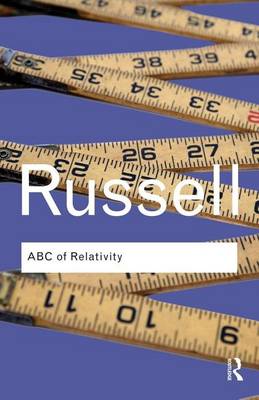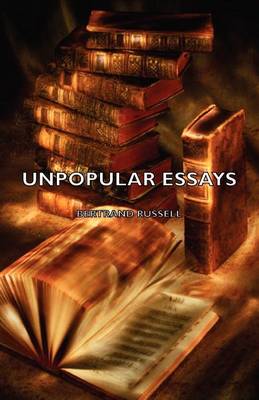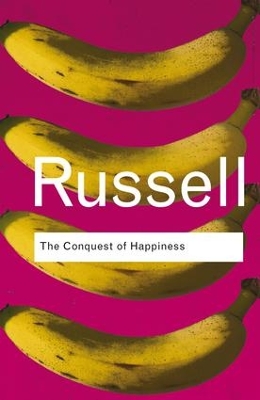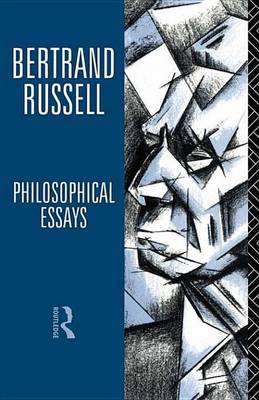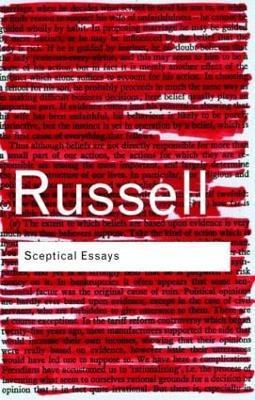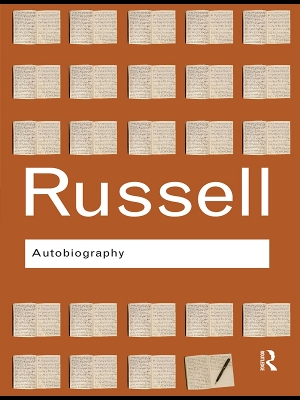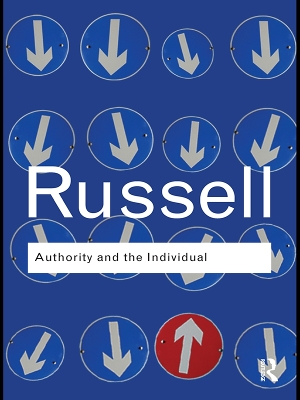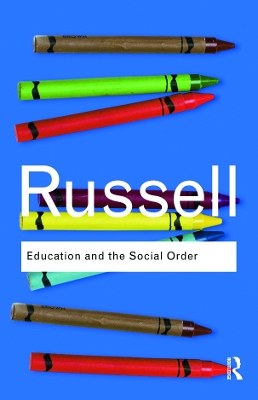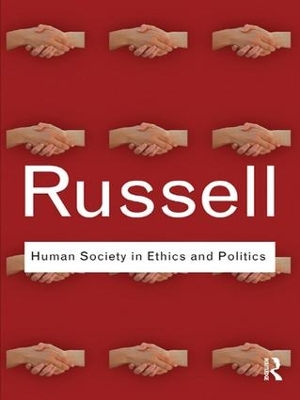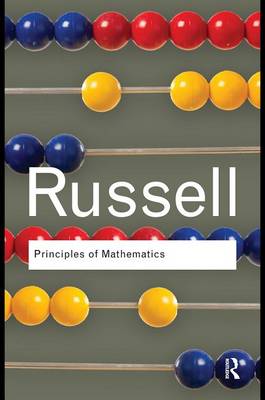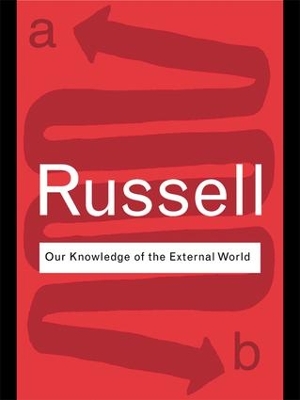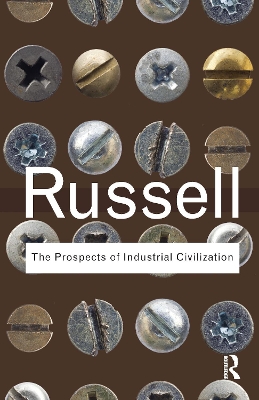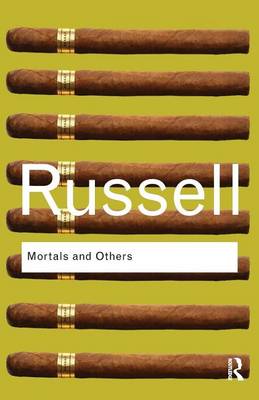Routledge Classics
37 total works
The basic principles of relativity have not changed since Russell first published his lucid guide for the general reader. The ABC of Relativity is Bertrand Russell's most brilliant work of scientific popularisation. With marvellous lucidity he steers the reader who has no knowledge of maths or physics through the subtleties of Einstein's thinking. In easy, assimilable steps, he explains the theories of special and general relativity and describes their practical application to, amongst much else, discoveries about gravitation and the invention of the hydrogen bomb.
Featuring seminal work in the philosophies of mathematics and language, this comprehensive and assiduously edited collection also makes available his provocative and controversial views on religion and international relations.
"I am as firmly convinced that religions do harm as I am that they are untrue," Russell declares in his Preface, and his reasoned opposition to any system or dogma which he feels may shackle man's mind runs through all the essays in this book, whether they were written as early as 1899 or as late as 1954.
The book has been edited, with Lord Russell's full approval and cooperation, by Professor Paul Edwards of the Philosophy Department of New York University. In an Appendix, Professor Edwards contributes a full account of the highly controversial "Bertrand Russell Case" of 1940, in which Russell was judicially declared "unfit" to teach philosophy at the College of the City of New York.
Whether the reader shares or rejects Bertrand Russell's views, he will find this book an invigorating challenge to set notions, a masterly statement of a philosophical position, and a pure joy to read.
A classic collection of Bertrand Russell's more controversial works, reaffirming his staunch liberal values, Unpopular Essays is one of Russell's most characteristic and self-revealing books. Written to "combat... the growth in Dogmatism", on first publication in 1950 it met with critical acclaim and a wide readership and has since become one of his most accessible and popular books.
The Conquest of Happiness is Bertrand Russell's recipe for good living. First published in 1930, it pre-dates the current obsession with self-help by decades. Leading the reader step by step through the causes of unhappiness and the personal choices, compromises and sacrifices that (may) lead to the final, affirmative conclusion of 'The Happy Man', this is popular philosophy, or even self-help, as it should be written.
'These propositions may seem mild, yet, if accepted, they would absolutely revolutionize human life.'
With these words Bertrand Russell introduces what is indeed a revolutionary book. Taking as his starting-point the irrationality of the world, he offers by contrast something 'wildly paradoxical and subversive' - a belief that reason should determine human actions. Today, besieged as we are by the numbing onslaught of twenty-first-century capitalism, Russell's defence of scepticism and independence of mind is as timely as ever. In clear, engaging prose, he guides us through the key philosophical issues that affect our daily lives - freedom, happiness, emotions, ethics and beliefs - and offers no-nonsense advice.
Bertrand Russell remains one of the greatest philosophers and most complex and controversial figures of the twentieth century. Here, in this frank, humorous and decidedly charming autobiography, Russell offers readers the story of his life - introducing the people, events and influences that shaped the man he was to become. Originally published in three volumes in the late 1960s, Autobiography by Bertrand Russell is a revealing recollection of a truly extraordinary life written with the vivid freshness and clarity that has made Bertrand Russell's writings so distinctively his own.
From Ancient Greek philosophy to the French Revolution to the modern welfare state, in Authority and the Individual Bertrand Russell tackles the perennial questions about the balance between authority and human freedom. With characteristic clarity and deep understanding, he explores the formation and purpose of society, education, moral evolution and social, economical and intellectual progress. First of the famous BBC Reith lectures, this wonderful collection delivers Russell at his intellectual best.
Bertrand Russell was renowned for his provocative views on education. Considered an educational innovator, Russell attempted to create the perfect learning institution. Despite the failure of this practical vision, it did not stop him from continuing to strive towards inventing and arguing for a system of education free from repression. In Education and the Social Order, Russell dissects the motives behind educational theory and practice, and in doing so lays out original and controversial arguments for the reformation of the education of the individual.
The key to human nature that Marx found in wealth and Freud in sex, Bertrand Russell finds in power. Power, he argues, is man's ultimate goal, and is, in its many guises, the single most important element in the development of any society. Writting in the late 1930s when Europe was being torn apart by extremist ideologies and the world was on the brink of war, Russell set out to found a 'new science' to make sense of the traumatic events of the day and explain those that would follow.
The result was Power, a remarkable book that Russell regarded as one of the most important of his long career. Countering the totalitarian desire to dominate, Russell shows how political enlightenment and human understanding can lead to peace - his book is a passionate call for independence of mind and a celebration of the instinctive joy of human life.
First published in 1954, Human Society in Ethics and Politics is Bertrand Russell's last full account of his ethical and political positions relating to both politics and religion. Ethics, he argues, are necessary to man because of the conflict between intelligence and impulse - if one were without the other, there would be no place for ethics. Man's impulses and desires are equally social and solitary. Politics and ethics are the means by which we as a society and as individuals become socially purposeful and moral codes inculcate our rules of action.
In addition to the new introduction by John Slater, this edition contains Russell's introduction to the 1937 edition in which he defends his position against his formalist and intuitionist critics.
Our Knowledge of the External World is a compilation of lectures Bertrand Russell delivered in the US in which he questions the very relevance and legitimacy of philosophy. In it he investigates the relationship between ‘individual’ and ‘scientific’ knowledge and questions the means in which we have come to understand our physical world. This is an explosive and controversial work that illustrates instances where the claims of philosophers have been excessive, and examines why their achievements have not been greater.
First published in 1923, The Prospects of Industrial Civilization is considered the most ambitious of Bertrand Russell's works on modern society. It offers a rare glimpse into often-ignored subtleties of his political thought and in it he argues that industrialism is a threat to human freedom, since it is fundamentally linked with nationalism. His proposal for one government for the whole world as the ultimate solution, along with his argument that the global village and prevailing political democracy should be its eventual results, is both provocative and thoroughly engaging.
Between 1931 and 1935, Bertrand Russell contributed some 156 essays to the literary pages of the American newspaper New York American. These were often fun, humorous observations on the very real issues of the day, such as the Depression, the rise of Nazism and Prohibition, to more perennial themes such as love, parenthood, education and friendship. Available for the first time in the Routledge Classics series in a single volume, this pithy, provocative and often-personal collection of essays brings together the very best of Russell's many contributions to the New York American, and proves just as engaging for today's readers as they were in the 1930s.
